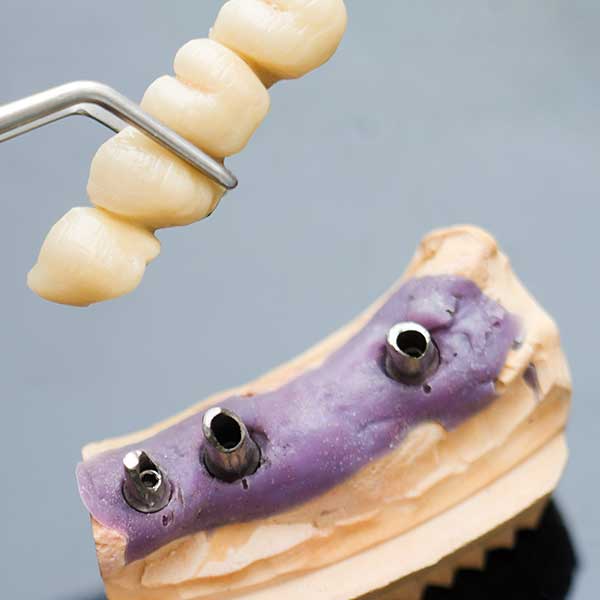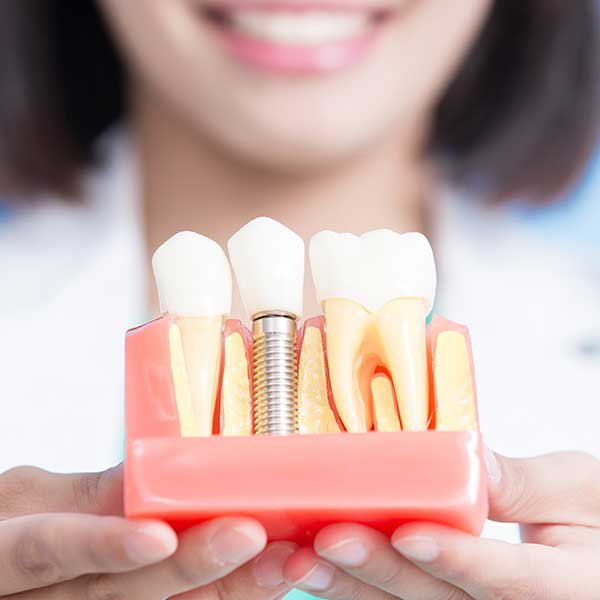
WELCOME TO VIP DENTAL IMPLANTS
Dental Implant Removal
Restorative dentistry through dental implants has come to stay with us, and the procedure is gaining more popularity than initially conceived. Hence, it is widely acknowledged as the best and most reliable and dependable procedure to replace a missing tooth or a set of teeth. If this assertion is true, you will begin to wonder ‘why there is a need to remove dental implants’.
Naturally, there is no smoke without fire!
Right, there is no need to think of dental implants removal if there is no problem; either a total-failure or malfunctioning. Though, this is a rare phenomenon in general dental implants. But since there is no system that is absolutely fault-free, dental implants failure is not an unusual occurrence no matter how rare they occur. The dental implants removal procedure is the process where already implants are removed due to some unforeseen circumstances ranging from total failure, failed osseointegration, gum infections, or relapsed bone graft.
However, a growing problem with dental implants is emerging with some issues that call for removal. Normally, removing a failed dental implant can be a safe and relatively easy procedure but each case depends on the different circumstances. For instance, implants that are already fully integrated with the bone will cause severe bone loss and discomfort if need to be removed. Absolute caution and approach are required to have these done. At VIP Dental Implant, we will do just that for you.
Before we begin to delve into the dental implants removal, we need to look at the different types of dental failures. Usually, there are two major types of dental implant failures: early failures and late failures.

Schedule Your FREE Dental Implants Consultation
Early failures
These can occur in the early state of implants (say within a couple of months after implantation) before the implants are fully integrated into the jawbone. These failures can be due to infections, failed-healing process, failed-osseointegration process, and in some rare cases further bone loss. Generally, removing the implants at the early failure instances is easy with minimal discomfort and stress. This is because the implants have not integrated rigidly with the bone and probably lose. The patient’s body may kind of resisting the integration or as the result of implants mobility due to improper implantation or immediate over-use of the implants during the healing process.
What Our Patients Say
Our patients love being treated at our locations, with consistent 5-star ratings across the board.










Late failures
The second type of dental implants failures is the ‘Late failures’. These types of failure may start manifesting from after a year after implantation. In cases like these, infection, initial over-use before the full integration of the implants with the jawbone. This type of failure can easily be removed just like the early failed-implants.
There are some rare instances of late failures called ‘perio-implantitis’ cases where some bacteria are found around the necks of the implants attacking the jawbone on which the implants are rooted. Symptoms of Perio-implantitis include acute pain, pus formation, abscess, and bad odor. Because this infection can quickly spread to other areas, the failing implants may have to be removed to prevent further infection and bone loss.
Schedule Your FREE Dental Implants Consultation
Some considerations for dental implant removal
Dental failures in the upper jaw are easier to remove than that in the lower jaw. Although time duration of the implantation is a critical factor that determines how easy or hardly an implant can be removed. Ostensibly, implantation that has stayed for over 24 months will be difficult to remove because it must have been graft-rooted to the bone.
Again, the size of the implants in terms of length and width may affect how a tooth implant or multiple teeth implants will budge during removal. A fractured implant or abutment will show greater resistance than intact, unbroken dental implants. Also, a deep-rooted dental implant with some vital nerves may be more difficult to dislodge than non-rooted ones.
The cheering news is that dental implants that have failed to match a patient’s needs can be removed at the discretion of the patient and the dental expert.
Dental Implant Removal in Houston, TX
Dental implant removal has never been this easier. Visit us at VIP Dental Implant to get the best experience you can ever imagine.

